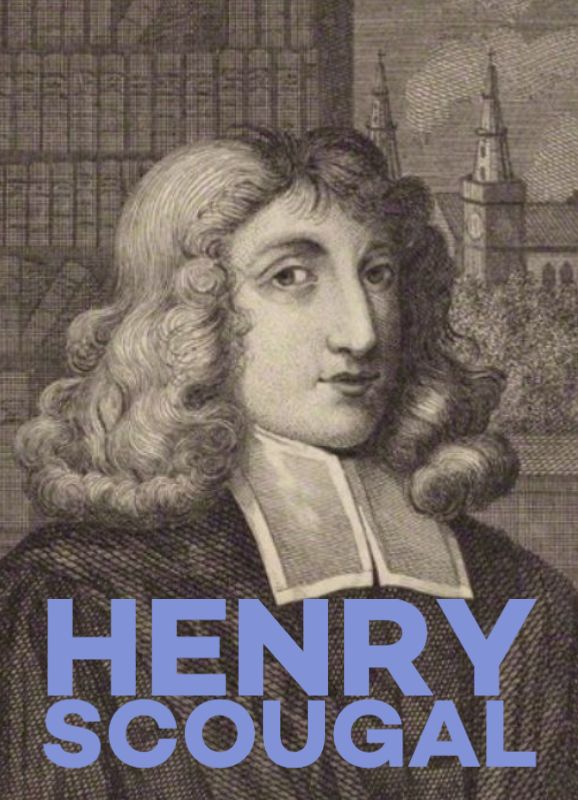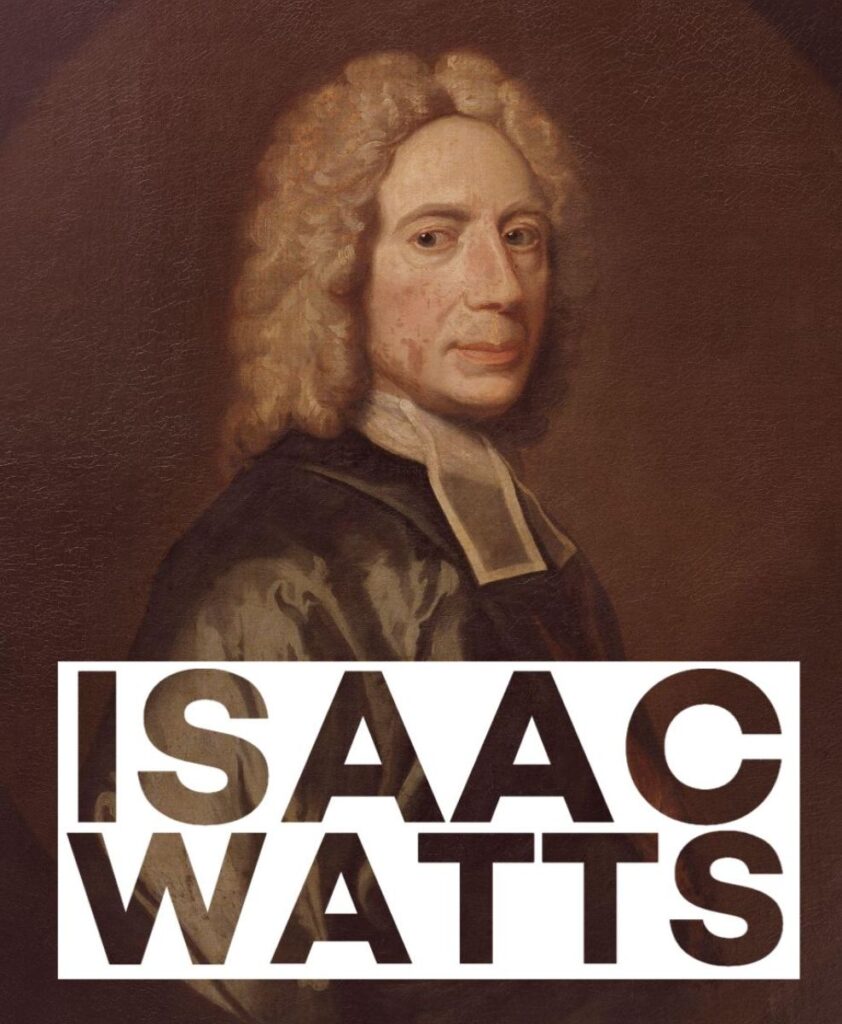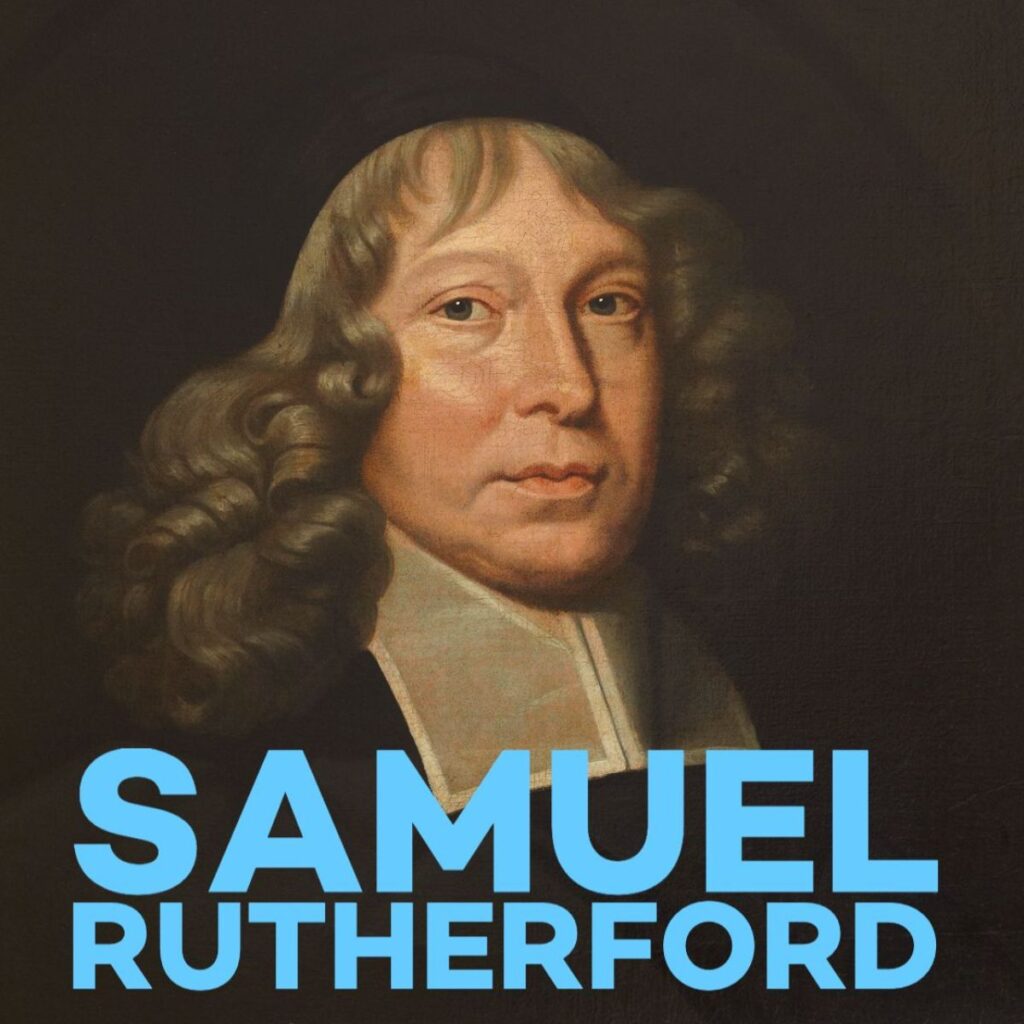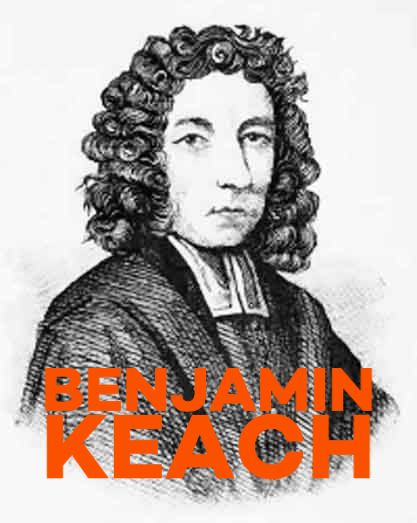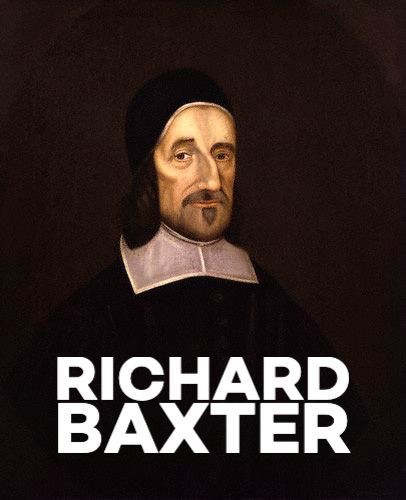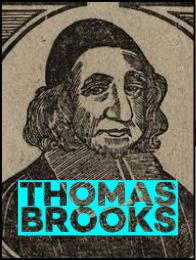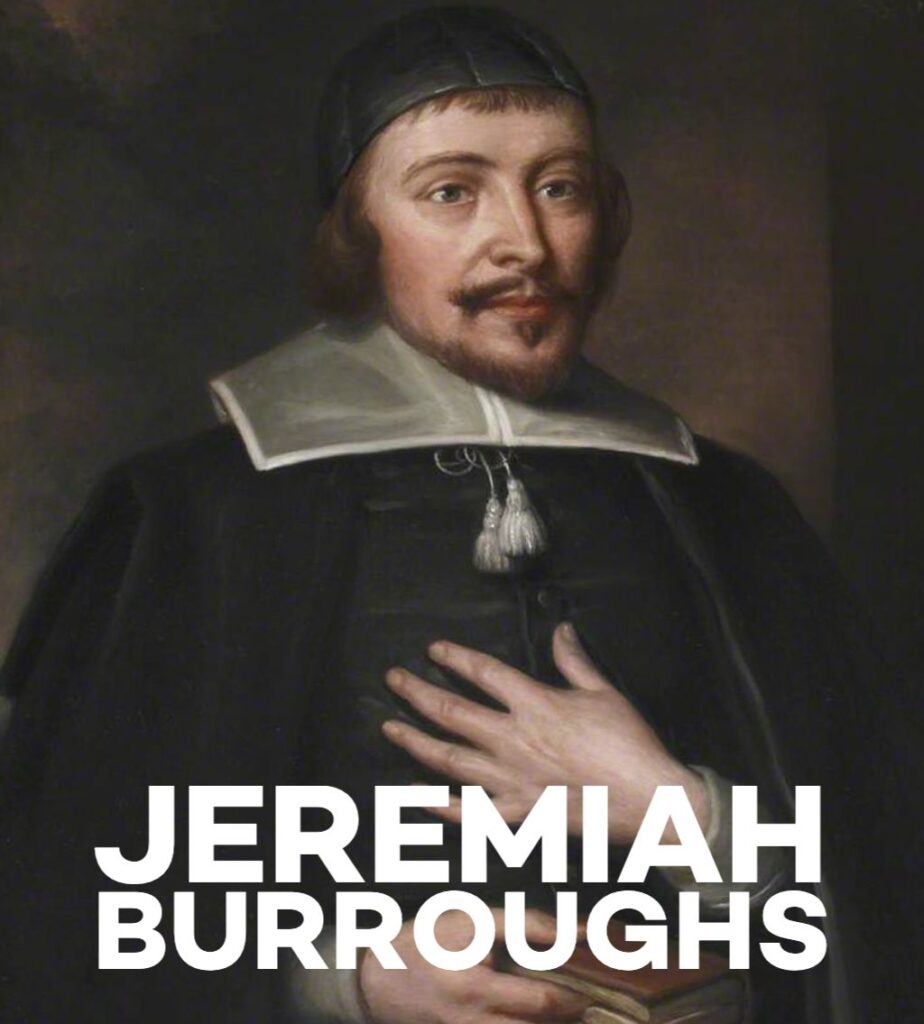Samuel Rutherford (1600–61) was born in the village of Nisbet, Roxburghshire he was the eldest son of a well-to-do farmer. At an early age, his parents took notice of his intellectual gifts and believed that God would call him to the ministry, though they seldom spoke about Christ. He was a young man who knew much but lacked conviction and was living in sin.
While in school, Rutherford excelled in Latin and Greek, and in 1623 he acted as Regent of Humanity. Two years later, he was forced to resign from all his positions after inappropriate behavior with a young woman, whom he subsequently married. God used this incident to change his heart.
In 1627, Rutherford pastored the church in Anwoth by the Solway in Kirkcudbrightshire for only nine years, and they were very life-giving for him. Rutherford rose at 3 a.m. every day, devoting hours to prayer and meditation. He wrote of one of his favorite places where he often walked in nature to ponder spiritual truths: “Woods, trees, meadows, and hills are my witnesses that I drew on a fair meeting between Christ and Anwoth.”
History shares that Rutherford could be a difficult man. On the one hand, he was godly and humble and had close intimacy with God. On the other hand, he had strong emotions and occasionally lost his temper and heaped abuse on his opponents. Historians believe Rutherford suffered from many mental issues, one being depression. Nevertheless, God used those inflictions and challenges to prepare Rutherford to comfort other suffering believers. Learning from experience, others, and personal devotion Rutherford wrote his catechism. He also wrote many letters to his congregation to encourage them and to keep Christ-centeredness in their life.
Rutherford’s first wife, Euphame Hamilton (the woman who got in trouble while in university and used to kick-start his faith journey), died in 1630 after suffering intensely for thirteen months. Except for one daughter, all the children she and Rutherford had died at an early age. In 1635, Rutherford’s mother, who had come to live with them, also died. These were painful sorrows in his life, but they did not sway him from his calling as a shepherd.
Rutherford was politically active during his ministry. By the providence of God, he had placed the little church of Anwoth strategically. Using that connection, Rutherford soon became a strong opponent of Episcopacy (Anglicans) and wrote much against them and organized times of prayer and fasting to point out their corruption. So, in July 1636 the High Commission brought Rutherford’s ministry in Anwoth to an end due to of his nonconformity, barring him from preaching in Scotland and exiling him to Aberdeen. Aberdeen proved to be a trying time for Rutherford. It was heavily Arminian, committed to the Church of England, and opposed to his Reformed Presbyterian convictions. It was during his two years in Aberdeen many of his famous Letters were written. These were designed to be a way of encouraging his congregation in Aberdeen, through their struggles.
In 1638, the Church of Scotland General Assembly restored Presbyterianism to the land and appointed Rutherford to the position of professor of theology at St. Mary’s College, St. Andrews. He reluctantly accepted, and only on the condition that he was allowed to preach at least once every Sunday. While he valued his work at the college, he still longed for his home and congregation back in Anworth.
In 1670, he married his second wife, Jean M‘Math. He had one daughter, Agnes, from his previous marriage and six more from the second marriage, all of whom died before Rutherford.
When the Westminster Assembly began in 1643, Rutherford was one of six Scottish commissioners invited to attend. Rutherford wrote at least five books, including his other famous writing Lex Rex (1644). This book deals with a magistrate’s right to exact obedience from his subjects and a citizen’s obligations towards magistrates. It grapples with questions related to natural rights, civil law, Christian obedience, and Christian ethics. Rutherford argues for limitations on the divine right of kings. The crown is bestowed by the voluntary consent of the people; therefore, the people are at liberty to resist a tyrant. His books brought him fame and invitations in the late 1640s and early 1650s to join prestigious faculties in the Netherlands, including Utrecht, where Voetius was teaching. Rutherford declined every invitation.
Rutherford’s writings and political convictions brought tension at a time when Scotland was in flux, some supported the monarchy, and others did not. So, when the monarchy was restored in 1660, Rutherford knew persecution awaited him. Given his reputation and influence in Scotland, in 1661, the government charged him with treason, deprived him of his church, and his university chair, placed him under house arrest, and took away his salary. Lex Rex was ordered to be burned and his presbytery to be overthrown. Ultimately, Parliament, seeking to eliminate all resistance to Charles II, sentenced the most prominent covenantal leaders to hang. Rutherford anticipated that and considered it a privilege to give his life for his Savior. But by the time the summons arrived in 1661, charging him with treason and demanding his appearance, Rutherford was already on his deathbed. When the Council returned and reported to Parliament that Rutherford was dying, Parliament almost unanimously decided that he not be allowed to die in the college. However, Lord Burleigh made a plea that allowed Rutherford to die in the college. Rutherford, peacefully on March 30, 1661, at St. Mary’s College, St. Andrews. Some of his last words were, “I shall live and adore Christ; glory to my Redeemer forever. Glory, glory dwelleth in Emmanuel’s land.” To his fellow ministers, he said, “Dear brethren, do all for Christ. Pray for Christ. Preach for Christ. Beware of men-pleasing.”
Samuel Rutherford lived a life filled with many trials, but he always remained close to Christ. To glean insights into the man who loved his congregation, read his Letters. To understand his political convictions read Lex Rex.

